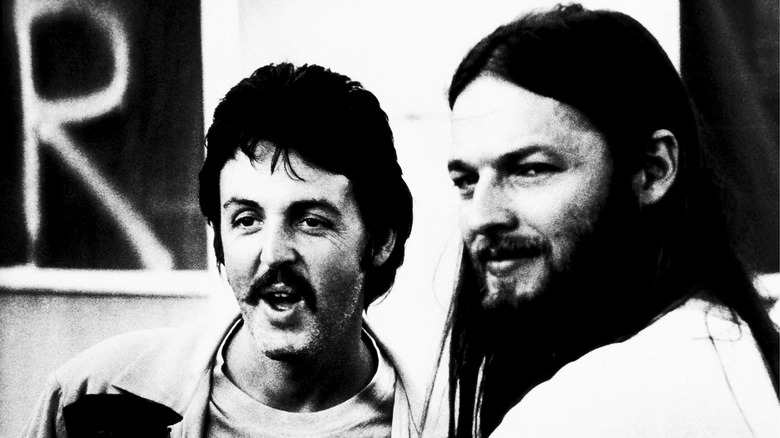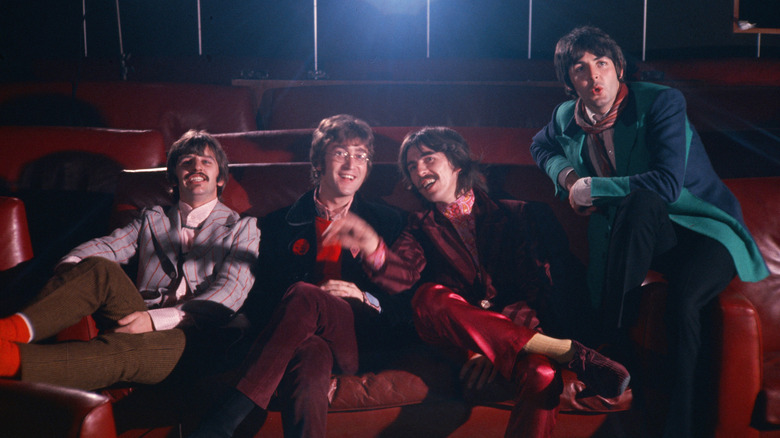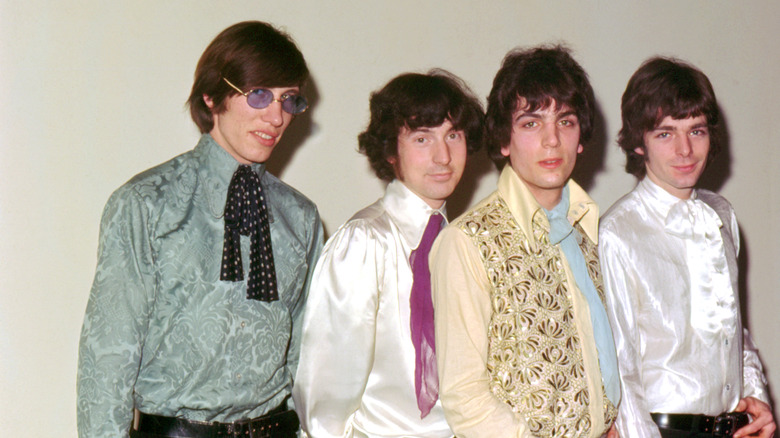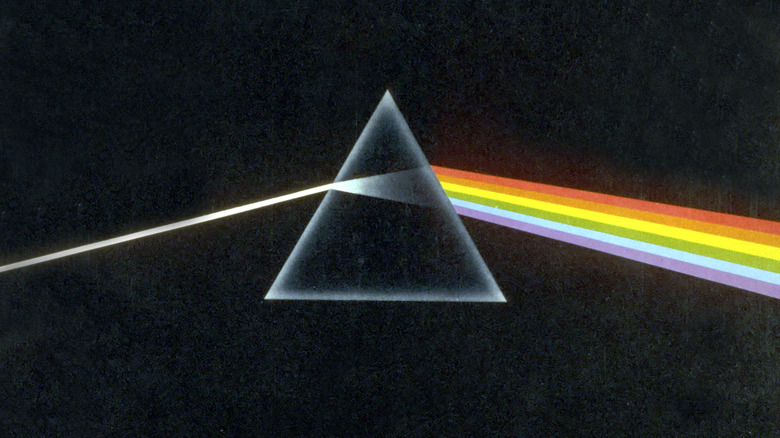Paul McCartney's Prediction About Pink Floyd Was Absolutely Right
"The Pink Floyd" as the band was known early in its career (they later dropped "the" from their name) was in the midst of recording their first album "The Piper at the Gates of Dawn" at London's Abbey Road Studios. It was April 1967 and in the next studio over the Beatles were also working hard, according to "Saucerful of Secrets: The Pink Floyd Odyssey." They were busy with "Sgt. Pepper's Lonely Hearts Club Band." Ringo Starr, George Harrison, and Paul McCartney popped over to see how things were going with the young band. The members of Pink Floyd stopped what they were doing and "stood rooted to the spot, excited by it all," Rogers Waters, the band's bass player and vocalist, recalled (via "Pink Floyd: The Early Years).
McCartney and the other Beatles could see the members of Pink Floyd were a bit nervous and unused to being in a recording studio. Barry Miles, a writer friend of McCartney, who was also there, noticed McCartney was especially kind and encouraging to them. Miles said it was as if the Beatles were "passing on the mantle" to the next generation.
The Beatles inspired Pink Floyd
Roger Waters listened to the Beatles in college but it was the album the Fab Four were working on in the studio next to Pink Floyd in 1967 that blew Waters away. He couldn't even wait to get home, pulling his car over to a rest area to listen to it with his "mouth hanging open" and thinking "Wow, this is so complete and accomplished," he recalled (via YouTube). Waters discovered a new sense of freedom in his work thanks to Paul McCartney, John Lennon, and George Harrison.
He told KLCS in 2015 (via YouTube) that listening to the Beatles made him realize "it was okay for us to write about our lives, and what we felt — and to express ourselves ... That we could be free artists and that there was a value in that freedom. And there was." The Beatles may have also been inspired by the younger band. "I'm sure the Beatles were copying what we were doing," "Peter Jenner, Pink Floyd's manager, said. "Just as we were copying what we were hearing down the corridor." Whether true or not, McCarney did see Pink Floyd as expanding on the Beatles' use of studio techniques and electronics. "Floyd came in after us ... and did a lot of cool experimental stuff," McCartney recalled in an interview with producer Rick Rubin for "McCartney 3,2,1" (via X).
Passing the torch
Before the fateful day when Paul McCartney watched Pink Floyd recording at Abbey Road, the younger band had already gotten a chance to see the Beatles during one of their recording sessions for the song "Lovely Rita" a few weeks earlier. Nick Mason, Pink Floyd's drummer, recalled standing at the back of the control room listening to the music that "sounded wonderful and incredibly professional." Even in the face of this, Pink Floyd was inspired rather than daunted. "It's hard to explain just how oddly confident we managed to remain, considering our inexperience and lack of technical proficiency," Mason recalled in his book "Inside Out: A Personal History of Pink Floyd."
McCartney's enthusiastic response to seeing Pink Floyd in the studio couldn't have hurt. The Beatle, when discussing Pink Floyd with his friend Barry Miles, said he believed they represented a "synthesis of electronic music and studio techniques and rock 'n' roll" that the Beatles had begun to explore. Miles felt McCartney's meeting with the band represented an acknowledgment "of the existence of a new generation of music." By that time, McCartney had already seen Pink Floyd play live and believed they were a "knockout."
Pink Floyd blows up
Paul McCartney's belief that Pink Floyd was a "knockout" and represented the next step in rock 'n' roll's progression from what the Beatles began couldn't have been more correct. Over the years, Pink Floyd continued to push the boundaries of the genre. Billboard magazine called them "key architects of progressive rock" with nearly "no competition." Their 1973 album "Dark Side of the Moon" spent 988 weeks on the Billboard 200 by early January 2024 — the longest of any album, per Commercial Music Group, Sony Music Entertainment President Richard Story (via Billboard). That album's record sales alone are more than 45 million, making it one of the best-selling albums of all time. The album outsold "Sgt. Pepper's Lonely Hearts Club Band," which in 2017 had sold 32 million copies worldwide. Overall, Pink Floyd has sold more than 250 million albums.
David Gilmour, the lead guitarist and singer for Pink Floyd, ended up becoming good friends with McCartney, playing guitar on three of the former Beatles' solo albums. When an interviewer asked Gilmour who was the greatest band, Pink Floyd or the Beatles, Gilmour gave a surprising, possibly self-effacing answer (via YouTube). "The Beatles were the best," he said.



